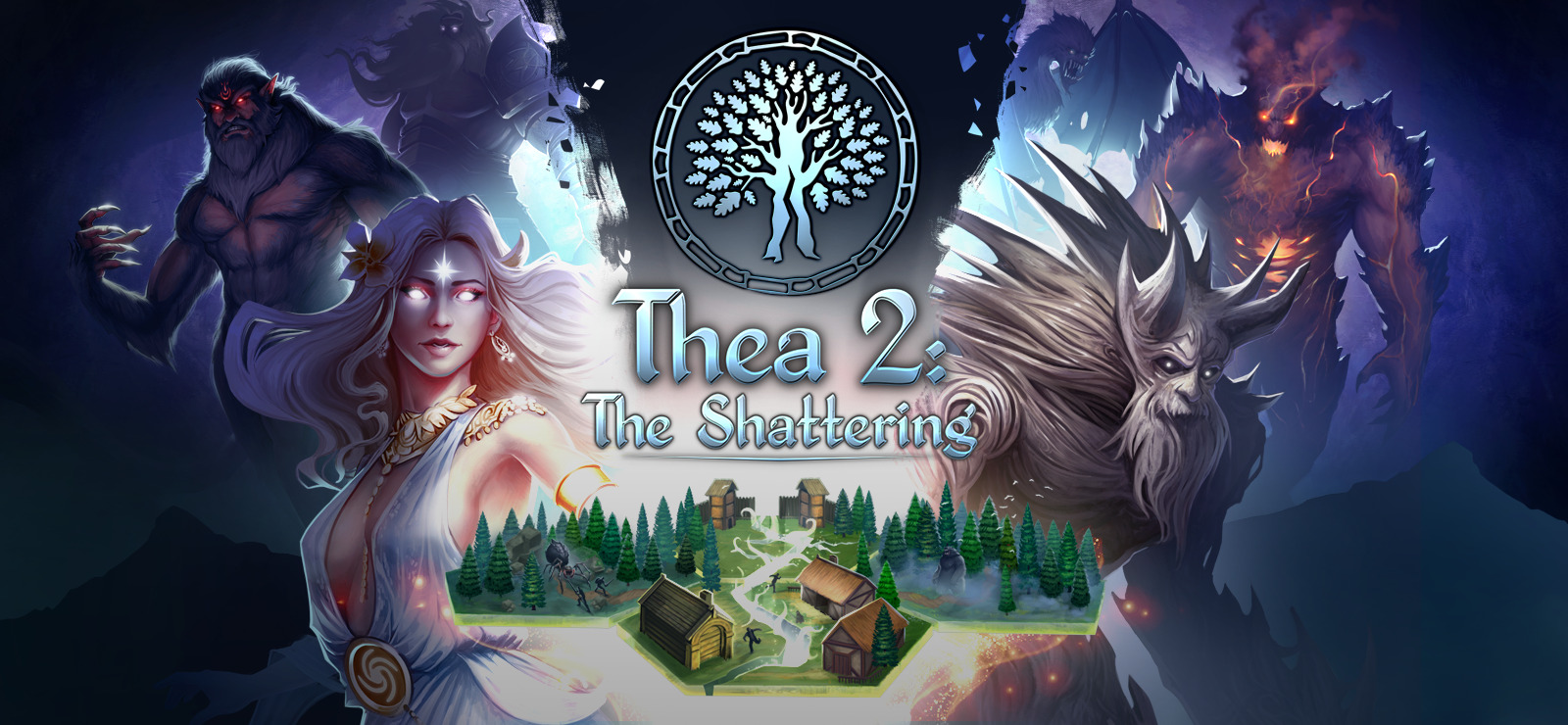We won't because they will be called Sony Shinjuku Studio by that time.

I wait long enough for their shitty PC ports thank you very much.
We won't because they will be called Sony Shinjuku Studio by that time.

Damn that big Sony news we got today really was Earth shattering.
Damn that big Sony news we got today really was Earth shattering.

Is there actually something else happening?Which news? The one in 2 hours?
Is there actually something else happening?
does anyone actually give a fuck after yesterday’s wet fart?
does anyone still listen to insiders after nonsense like the switch pro? Or after Jon Cartwright proved how easy it is to fake this stuff?
That people still fall for the “I know something you don’t know know!!” schtick from wankers like Greg miller who know exactly what they’re doing is amazing

Fair enoughThat was a joke.
A joke based on I keeper reading "it's just 1 hour more", "30 min to go", "6 hours to go" every time.
Im tired of hints from journos and insiders.
Fair enough
The cycle of crap like yesterday just really bothers me

Ok, that makes sense, I was like "weird expression, isn't it?" loloh the west and their custom translations...

PS: image is from ghostwire tokyo.
Yep, that line felt totally out of place.Ok, that makes sense, I was like "weird expression, isn't it?" lol
oh the west and their custom translations...

it's NMH3 PC TIME, BBY!!!!
almost certainly. Showing a single line like that out of context shows pretty clearly how most people don't understand what goes into translation. Localisation is translation. Japanese is drastically different langauge then English, with completely different expressions. A one-to-one direct translation is usually the worst choice and sounds like complete gibberish.The screenshot is misleading since it's a single line that is probably taken out of context. I believe there must be a good reason to have certain localisation choices like these.
I mixed them both lolXseed isn't there though - they'll be at Pax East in late April (21-24.04).
As for the rest of NG+, it would be nice to see Labyrinth of Galleria but not expecting that.
Basically, the Cell CPU was unnecessarily complex for a gaming system.Main issue is the SPUs. They’d have to find some way to work around that within the PS5 hardware as the CPU alone isn’t up to the task, I think.
We’ve tested RCPS3 on a PS5 CPU and the SPUs absolutely destroy it. Games that don’t lean on SPUs can run fine.
I don't really understand the criticisms people have towards this game's localization. Nothing about it is any different from how TWEWY was handled from my experience with both games. Both games use a lot of modern teen lingo with punk vibes because thats...what the game is really. A game set in modern Shibuya about teenagers trying to be hip (you even get better stats based on how trendy your clothes are in particular areas) while they survive a 7 day game.Neo: The World Ends With You
If Square Enix ever gets purchased by another company, let alone Sony, I will die. I don't want companies meddling with their games. Their games are too good.We won't because they will be called Sony Shinjuku Studio by that time.
I overall agree with you but I think the bad rep some people have towards "localization" as a term is due to how some dialogue in games wind up significantly different in meaning than their originally intended dialogue during the localization process, at least more different than they need to be to still understand what's trying to be conveyed. It's not that people are asking for things to be translated very literally down to the sentence structure, but want things to convey as similar a meaning as possible, which tends to get lost on occasion during the localization process. Like there's gotta be a balance between sounding natural in English and being true to the intended meaning of the phrases. I think a lot of people with these kinds of desires just don't seem to know how to convey these feelings in an articulated manner, so they wind up saying things like "I want a literal translation" and other silly things like that.Localisation is translation. Japanese is drastically different langauge then English, with completely different expressions. A one-to-one direct translation is usually the worst choice and sounds like complete gibberish.
I think most of these egregious examples are just that the translators didn't get enough time and had to rush. If you notice a line being off, then you can bet the people that translated it and read the script many times knew about it too. And "fixing" it might require changing many other things too, and thus needs some thought and time. But if you are under a time limit and there are other parts of the scripts with bigger problems, then you compromise and leave some things for later. And as the deadline comes closer, that "later" turns into "never".I overall agree with you but I think the bad rep some people have towards "localization" as a term is due to how some dialogue in games wind up significantly different in meaning than their originally intended dialogue during the localization process, at least more different than they need to be to still understand what's trying to be conveyed. It's not that people are asking for things to be translated very literally down to the sentence structure, but want things to convey as similar a meaning as possible, which tends to get lost on occasion during the localization process. Like there's gotta be a balance between sounding natural in English and being true to the intended meaning of the phrases. I think a lot of people with these kinds of desires just don't seem to know how to convey these feelings in an articulated manner, so they wind up saying things like "I want a literal translation" and other silly things like that.
More extreme examples of this have happened in games like Fire Emblem Fates, a sort of goto for this kind of thing, but this sort of thing still happens today with some lines of text in some games.
I thought it was a great line.oh the west and their custom translations...

PS: image is from ghostwire tokyo.

 exputer.com
exputer.com
NetEase, the Chinese internet technology company will reportedly acquire 100% of Quantic Dream, with an announcement likely to come this summer, sources suggest.
Such a waste of money.
Sources - NetEase to Acquire 100% of Quantic Dream
NetEase, the Chinese internet technology company will reportedly acquire 100% of Quantic Dream, with an announcement likely to come this summer.exputer.com
I disagree. This notion that these are two different things is very Western centric. If you look at Europe, and pick any two countries, say Spain and Germany, you are looking at cultures that have a ton of similarities, like religion, very close connection in their history, with things like WW1 and WW2 affecting both heavily and the way people live is not crazy different relative to all cultures on this Earth.The whole issue of localisation vs translation is a fine line.
Free game on GOG
Thea 2: The Shattering
Includes The Awakening, Wrath of the Sea and Rat Tales & More DLCs Thea 2: The Shatteriwww.gog.com
Sorry for the off topic, but this topic is a bit of pet peeve of mine.
I disagree. This notion that these are two different things is very Western centric. If you look at Europe, and pick any two countries, say Spain and Germany, you are looking at cultures that have a ton of similarities, like religion, very close connection in their history, with things like WW1 and WW2 affecting both heavily and the way people live is not crazy different relative to all cultures on this Earth.
Thus if you want to translate some book or story from Spanish to German, you probably don't need to do much heavy lifting on cultural notions and often not even on idioms. Thus we get the idea that this is just how translation works, understand how sentences are structured, what the words mean and there you go, Bob's your uncle. Language contains way more tricky things than just grammar and the meaning of words. We express lots of cultural ideas that absolutely require the other person to know lots of things about how people express themselves. Every time you utter the word "God", you reference whether you understand it or not, thousands of years of a particular religion affecting your culture. To someone else without that background, this use of the word would seem very strange, they might assume people here are very devout if they constantly speak of this deity.
To go back to the original point, since Japanese and Japan are about as far removed from the Western cultural sphere as you can be, with a history beyond the 20th century that again could hardly be more different , with religious influences that have no connection to Christianity and many cultural norms and ideas different to our Western ones, any decent translation will have to do some heavy lifting to make things intelligible and sound natural in the target language. And often that might even mean cutting some things. Certain jokes might simply not work, you'd have to try to find something else entirely. Puns are a completely lost cause and many common phrases and saying, will simply have to be replaced or completely worked around.
This is why these comparisons where one word in Japanese will be rendered as multiple sentences in English you see sometimes are so stupid. They might be able to express something with a simple shorthand or metaphor, that we simple can't (and vice-versa).
If someone in English says "sticks and bones", they reference a Children's rhyme. If you wanted to say this in Japanese, you'd necessarily need more than just three words. That wouldn't mean you failed as a translator, it means you actually understood what it is that translation has to do: render a natural text in your target language.
That's not saying that all decent translations are then naturally perfect. Using lot's of memes that are not going to age well might not be a great choice (though I guess it depends on whether the original Japanese had something like that too, it might be authorial intent). You can still mess up translations in many ways. All I'm saying is that good translation from Japanese in particular has to be localisation too and that's true of translations of any two languages from different cultural spheres. You'd have the same issues if you went from Chinese to English.

While I agree with most of what you write, I don't think it completely invalidates the distinction between a "translation" and a "localization". I think the "distance" (in a non-geographic sense) between two cultures mostly affects how much extra (meta-)information a translation needs to include in order to be understandable. (While a localization should require none)Sorry for the off topic, but this topic is a bit of pet peeve of mine.
[...]
I agree, in the case that the cultural notions are not just subtext, but context, you need to make it available to the player. A lot of VN games, like the Science Adventure games, include essentially an in game encyclopedia explaining references to the players. While it's a bit crude, it's probably the best way of dealing with that situation.While I agree with most of what you write, I don't think it completely invalidates the distinction between a "translation" and a "localization". I think the "distance" (in a non-geographic sense) between two cultures mostly affects how much extra (meta-)information a translation needs to include in order to be understandable. (While a localization should require none)
That said, while the whole "translator's note" thing is a meme for a reason, I personally believe that it is sometimes more appropriate to go go for something on the spectrum between translation and localization rather than 100% localization. An example would be when a game takes place in Japan, and derives story-relevant elements from that. Ignoring/working around that cultural setting in the localization rather than explaining it in a translation might make the initial hurdle of understanding the scenario it first comes up with lower, but it might also lead to consistency issues down the line.

Wait, what happened yesterday?does anyone actually give a fuck after yesterday’s wet fart?
Project Spartacus aka the new PS Plus tiersWait, what happened yesterday?
Ace Attorney was actually exactly what I was thinking about while writing that paragraph. I enjoyed playing the English version nonetheless, but that initial localization choice becomes increasingly dissonant with later episodes.A pretty extreme example is probably the Ace Attorney series, and how it handles the city of Kurain, set in an somewhat achronistic rural Japanese town). While I generally like the translation of those games, it does lead to some silliness since they chose to set it in America officially.

betting 5 dollars that this is NFTs
in very recent news that nobody is talking about
METAL GEAR 35TH ANNIVERSARY 公式WEBサイト
betting 5 dollars that this is NFTs
It reminds me of really early game translations, like Nintendo 64 prior. Y'know, when games were translated with tons of liberties and basically no oversight by the original developers, up to not communicating if there might be a sequel down the line. Except it's generally of good quality rather than a mess of stilted, horrible grammar.Ace Attorney was actually exactly what I was thinking about while writing that paragraph. I enjoyed playing the English version nonetheless, but that initial localization choice becomes increasingly dissonant with later episodes.
in very recent news that nobody is talking about
METAL GEAR 35TH ANNIVERSARY 公式WEBサイト

betting 5 dollars that this is NFTs

